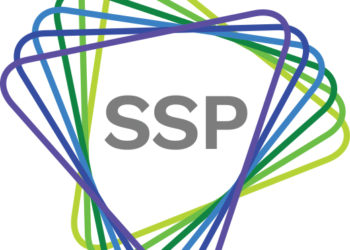This eighth episode of SSP’s Early Career Development Podcast is the second in a two-part series on open access (OA) publishing (see Part 1 here). In this section, Meredith Adinolfi (Cell Press) and Ann Michael (DeltaThink) discuss some of the more complex aspects of the OA landscape, such as funder mandates, Plan S, and transformative agreements.
To wrap up the two-part series on OA, we encourage our listeners to continue reading and learning about OA. Below are some resources that Ann was kind enough to share for interested readers:
- Seeking Sustainability: Publishing Models for an Open Access Age
- PLOS Community Action Publishing model
- Subscribe to Open resources:
- Sustainable Open Access (recorded webinar with Ann Michael, Raym Crow, and Sara Rouhi from PLOS)
- cOAlition S website and resources
- Plan S impact
- Transformative journals:
- ESAC Initiative
- University of California model and toolkit

Listen:
Subscribe:
Scholarly Kitchen podcast on iTunes
Scholarly Kitchen podcast RSS feed
Transcript:
A transcript of this podcast is available here.
Background on this podcast series
SSP’s Career Development Committee launched a podcast series in 2019 for early career publishing professionals. Co-hosted by Meredith Adinolfi (Cell Press) and Sara Grimme (Digital Science), the podcast series offers advice and discussion on how early career publishing professionals can add to their skill sets, develop networks, and take advantage of opportunities. The series presents interviews and insights from experienced professionals on how to navigate one’s career in a diverse and ever-changing landscape of scholarly communications.
Discussion
1 Thought on "SSP’s Early Career Development Podcast: Episode 8, Open Access (Part 2)"
The Plan S criteria have definitively softened over time away from the original aim to force a hard OA policy for research funded by the signatories, and to break the power of the big commercial publishers to charge handsomely, either for subscriptions behind paywalls, or as APCs . They have really backed away from limiting the high APCs charged by commercial publishers referred to @15min [the rest of the sector charges lower APCs or nothing, with exception of a few societies in STEM]. They say “the journal/platform must provide APC waivers for authors from low-income economies and discounts for authors from lower middle-income economies, as well as waivers and discounts for other authors with demonstrable needs. Waiver policies must be described clearly on the journal website/platform and statistics on waivers requested and granted must be provided.” and there are other statements about the requirement from publishers for transparency about the APCs charged, and that funders should be paying the APCs [with some wiggle room]. https://www.coalition-s.org/addendum-to-the-coalition-s-guidance-on-the-implementation-of-plan-s/principles-and-implementation/
In the academic-led no budget journal sector [yep we are interested in ‘changing the world’ @ 29min], we get very little from Plan S. No money for xml machine readability, or clockss style archiving. We asked. Some help with ‘transformative agreements’ perhaps, which as you note at 19min, advantages the big players more as currently structured. See https://www.coalition-s.org/guidance-on-the-implementation-of-plan-s/
So, 2 cheers for Plan S: data and articles are at least becoming more available to the public. Publishers have still been able to maintain those profits, and placate shareholders.

